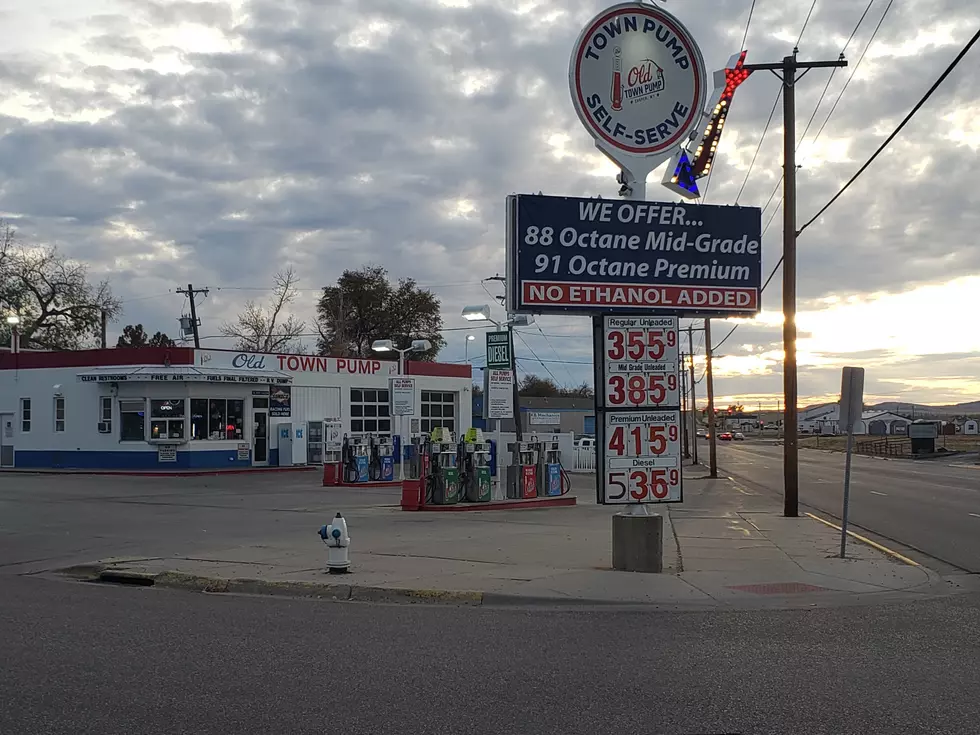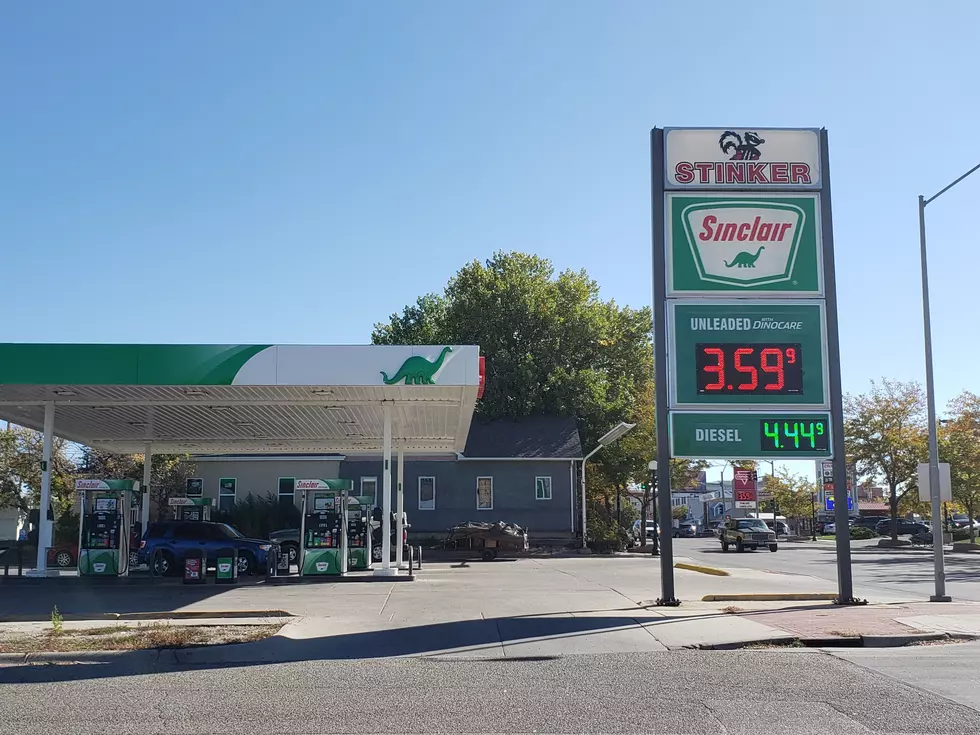
Gordon’s Gas Group Publishes Report on Lowering Prices at the Pump
Governor Mark Gordon released on Tuesday a report from the Gas and Diesel Working Group, which he established in June.

The Working Group was comprised of 10 members, including the directors of the Wyoming Departments of Transportation and Revenue, three members of the Wyoming legislature, and members from Occidental Petroleum, the Wyoming Trucking Association, the Wyoming County Commissioners Association, the Colorado-Wyoming Petroleum Marketers Association, and the Wyoming Wyoming American Association of Retired Persons.
In July the working group had two public meetings and the report later identified various areas to lower gas prices including increasing the capacity of Wyoming refiners, setting up a gas app, lowering the fuel tax for the elderly and disabled, signing agreements for more fuel storage in Wyoming, and leasing more state and federal land for oil and gas production.
There are also several ideas that the working group considered but advised against implementing, including eliminating the statutory prohibition on charging less than the cost of a product and reducing the state's fuel tax across the board.
According to the report, eliminating the statutory provision could lead to pushing smaller retailers out of the market while reducing the fuel tax would lead to less money for highway repairs and have a minimal impact on consumers in Wyoming.
Clark Stith, a representative in the Wyoming legislature and working group member, said in the release:
"The most promising direct policy recommendation involves incentivizing the use of existing fuel storage capacity to reduce upward pressure on prices. The working group did not recommend a state fuel tax holiday, as the bulk of the benefits would go to producers and out-of-state drivers and deplete the highway fund," Stith said. "I want to thank the Governor’s office policy staff, the director of the Department of Revenue, the director of WYDOT, my fellow working group legislators and the private sector stakeholders whom all contributed."
Stith said what could help supply the most is more refining capacity in Wyoming and the U.S., but that it would be difficult for the state to influence the number of refineries.
"It's not limited to Wyoming, it's in the whole United States and there's the problem with refining capacity is it's very long-term projects, and the federal government leans very heavily against you if you try to build a new refinery, very difficult to do so," Stith said. "And so it's kind of a bleak outlook on that. I don't believe the state of Wyoming should get into the business of being a state oil refiner. I think that's what Venezuala does, that's what Nigeria does, that's what Mexico does. I just think that's not America, that's not Wyoming."
As far as he's aware, Stith said with the report published, the working group will not be meeting again.
Michael Pearlman, communications director with the governor's office, said in an email that Gordon is reviewing the report and considering potential next steps.
Gordon said in the release:
"I thank the Working Group for a job well done," Gordon said. "We have always recognized that national and global factors weigh heavily in determining the price at the pump. However, this report outlines actions Wyoming can take that can make a difference to our residents, in addition to just being able to produce more oil and gas. There are some specific recommendations that the public, and especially the Legislature, should look to for solutions to high gas and diesel prices here in Wyoming."
22 Exotic License Plates Turned Into This Wyoming DMV
The 7 Funniest Yellowstone T-Shirts You Can Own
More From K2 Radio









